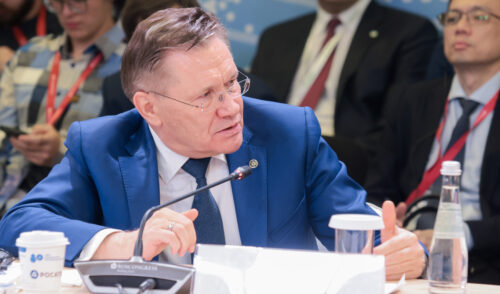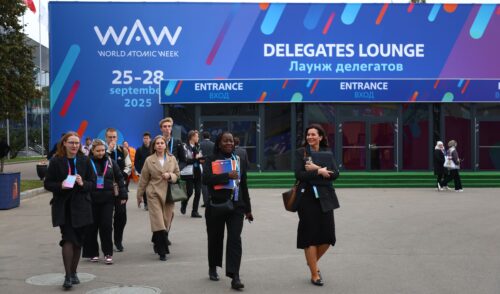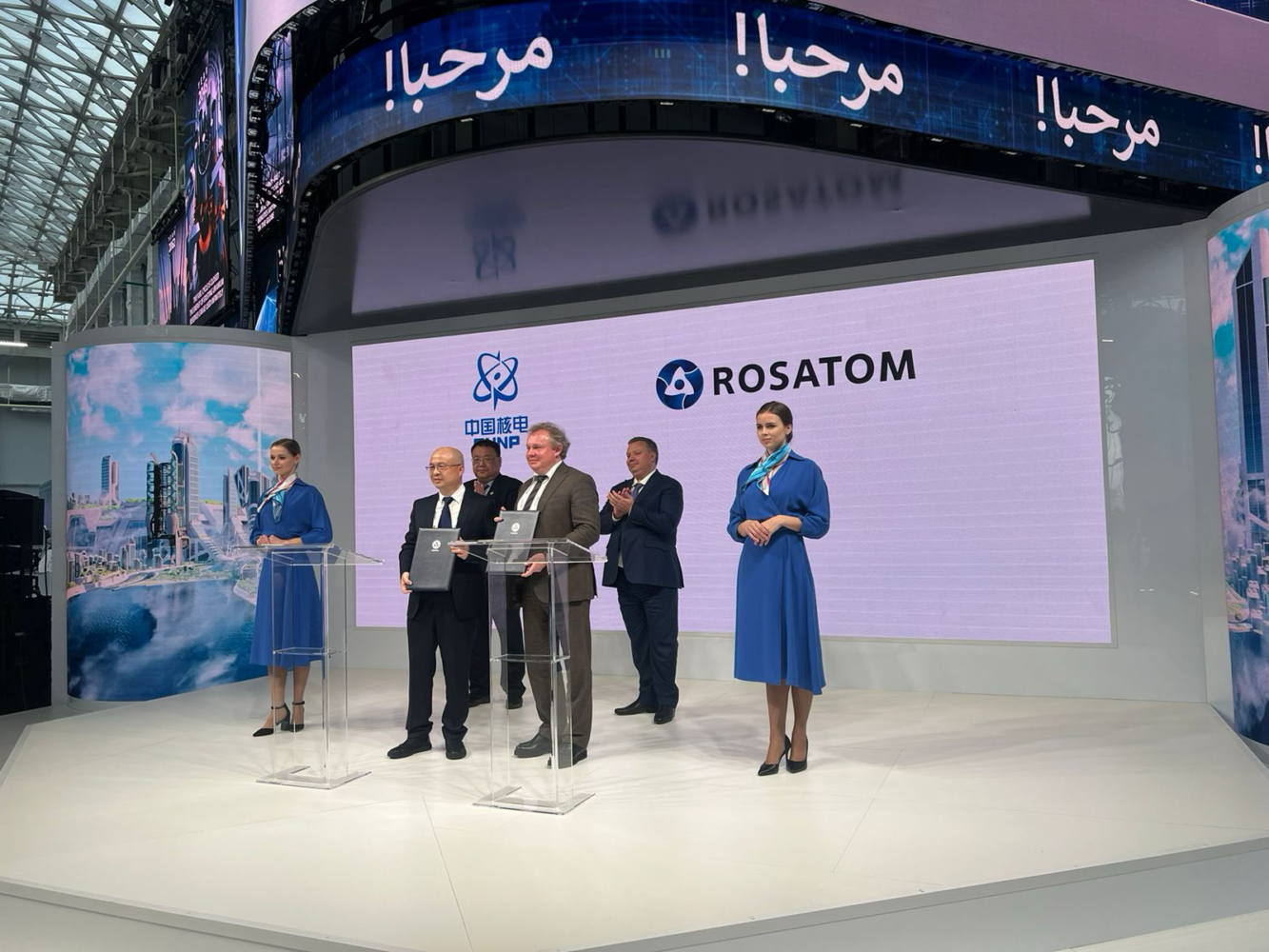
Signed at Atomexpo 2024
back to contentsOver 80 agreements were signed at Atomexpo 2024, which is almost twice as many as at the previous event and a record-high number since the first forum. Parties to the agreements have a broad global footprint, and the areas of cooperation are diverse. Here is our account of the agreements reached.
China
TVEL (Rosatom’s fuel division) and Chinese companies Limac Company Ltd. and Dalian Baoyuan Nuclear Equipment Co. Ltd. signed a memorandum of understanding for nuclear decommissioning and radioactive waste management. The partners are considering the possibility of jointly producing equipment for radioactive waste management and transportation.
TVEL, the National Operator for Radioactive Waste Management (part of Rosatom), the Russian Academy of Sciences Nuclear Safety Institute, and the Beijing Research Institute of Uranium Geology signed a memorandum of understanding for the ultimate disposal of nuclear waste. The Russian companies are planning to take part in China’s MONEH international research project. It provides for the monitoring and assessment of hydrogeological properties of rocks during the construction and operation of the Beishan Underground Research Laboratory.
Another memorandum of understanding was signed between Rosatom Healthcare Technology, China Isotope & Radiation Corporation, and CNNC Medical Industry Co., Ltd. The parties intend, among other things, to jointly develop and manufacture radiopharmaceuticals and equipment for nuclear medicine, train personnel, and establish medical infrastructure facilities, particularly Russian-Chinese friendship medical centers.
Rusatom Service (part of Rosatom’s power generation division) and China’s Jiangsu Nuclear Power Corporation (JNPC) signed two contracts, for the comprehensive maintenance of Tianwan Units 1, 2, 3 and 4 and for the cut-out and removal of irradiated surveillance specimens from the reactor pressure vessels of the same power units.
Belarus
Rosatom and the State Science and Technology Committee of Belarus signed an integrated cooperation program for nuclear non-energy and non-nuclear projects. The overarching goal is to ensure technological sovereignty of the Union State of Russia and Belarus by creating reliable supply chains.
TVEL and the Belarusian Radioactive Waste Management Organization (BelRAO) signed a roadmap for the introduction of training courses and advanced training programs for the employees who will work at the radioactive waste repository facility in Belarus.
A cooperation agreement was signed with the National Academy of Sciences (NAS) of Belarus to conduct joint research at the MBIR multipurpose fast neutron research reactor in the International Research Center. The parties will outline potential areas of research, draft multilateral research programs, participate in the research and administrative activities of the consortium, and so on.
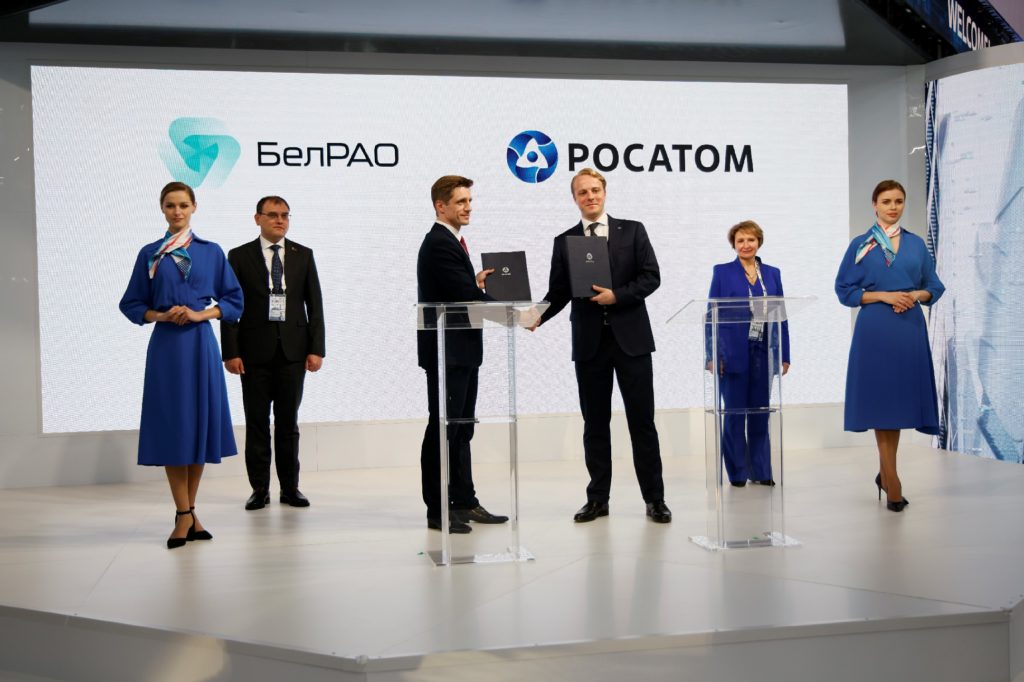
Another agreement with the Belarusian NAS provides for the cooperation in staff training, advanced and applied studies, surveys and engineering.
Rosatom and Giprosvyaz, Belarusian leader in network and system engineering, signed an agreement on strategic cooperation. The document provides for a comprehensive program for the development, production and testing of telecommunications equipment with plans to sell it in the Belarusian and other markets.
Kyrgyzstan
The governments of the Russian Federation and the Kyrgyz Republic signed an agreement on cooperation in remediating legacy uranium mining sites in Kyrgyzstan.
Rosatom and the Kyrgyz Ministry of Energy signed an agreement to develop and implement small-scale hydro generation projects with a capacity of up to 400 MW in several regions of Kyrgyzstan.
Rosatom’s wind power division and the Kyrgyz Ministry of Energy agreed to develop and implement a project for the construction of renewable energy facilities with a capacity of up to 1 GW. The first step will be the construction of a 100 MW pilot wind farm in the Issyk-Kul region. Then the parties plan to assess other sites for the deployment of wind power plants with a total capacity of up to 900 MW.
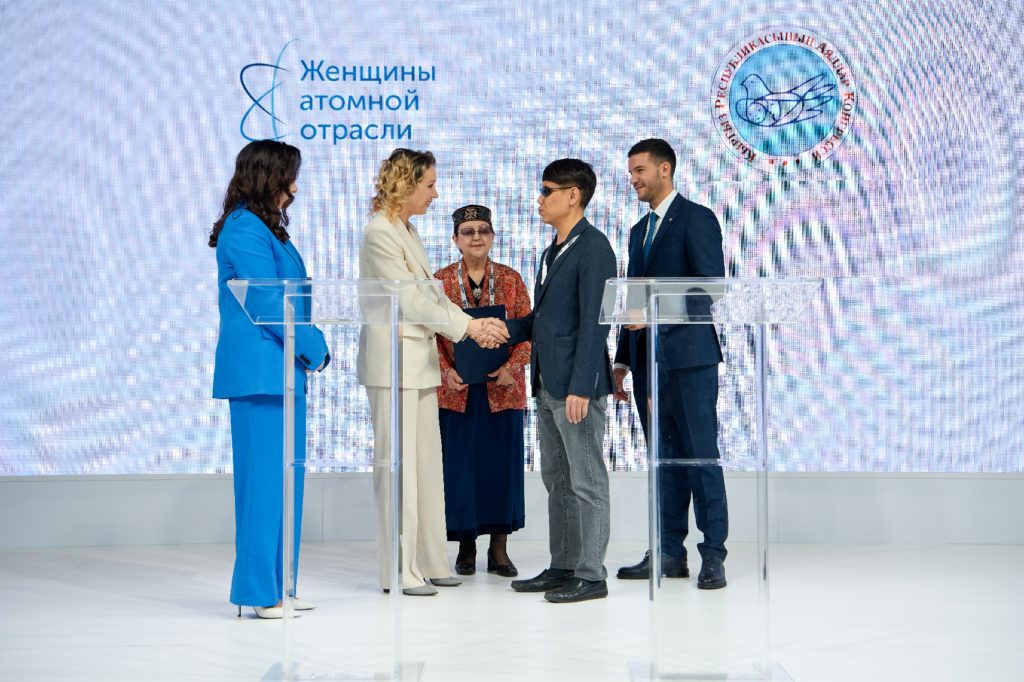
Mali and Burkina Faso
Rosatom Director General Alexey Likhachev, Republic of Mali’s Minister of Energy and Water Bintou Camara, and Burkina Faso’s Minister of Energy, Mines and Quarries Yacouba Zabré Gouba signed roadmaps to establish a dialog in peaceful uses of nuclear energy. After the parties set up a legal framework for international cooperation, they will consider the possibility of implementing nuclear power projects and using radiation technologies in agriculture and medicine in Mali and Burkina Faso.
Serbia and Kazakhstan
Rosatom and the Serbian Ministry of Health signed a memorandum of understanding and cooperation in nuclear medicine. The parties agreed to carry out joint non-energy projects to use nuclear technologies in healthcare with a focus on nuclear medicine. A special focus is made on the diagnostics and treatment of oncologies with peaceful atom technologies.
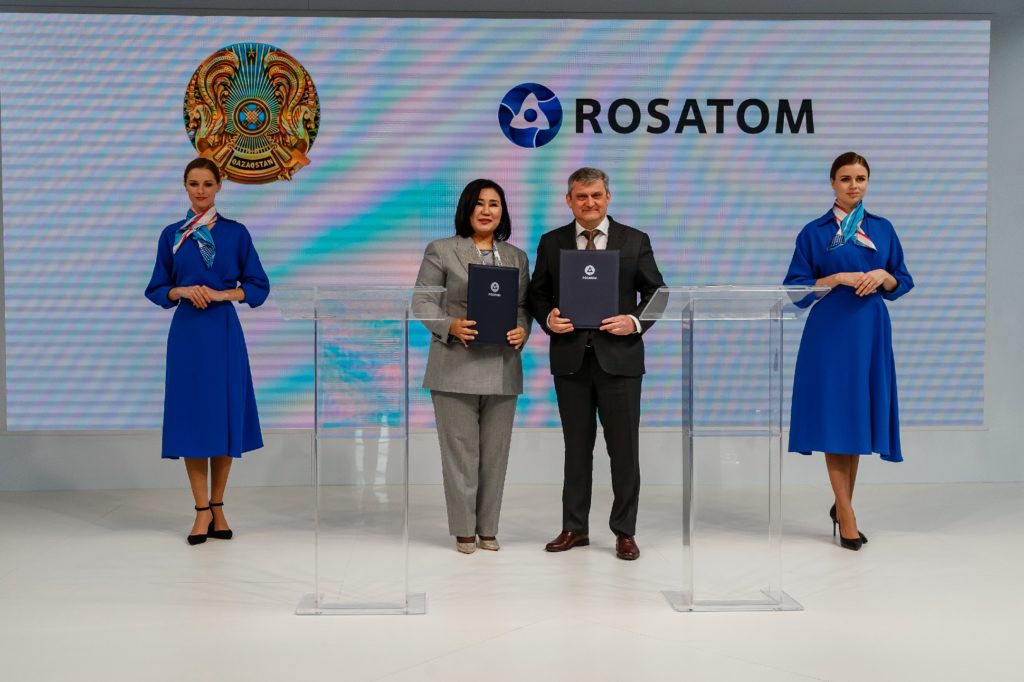
A similar memorandum was signed between Rosatom Healthcare Technology and the Healthcare Department of the Zhambyl Region (Kazakhstan).
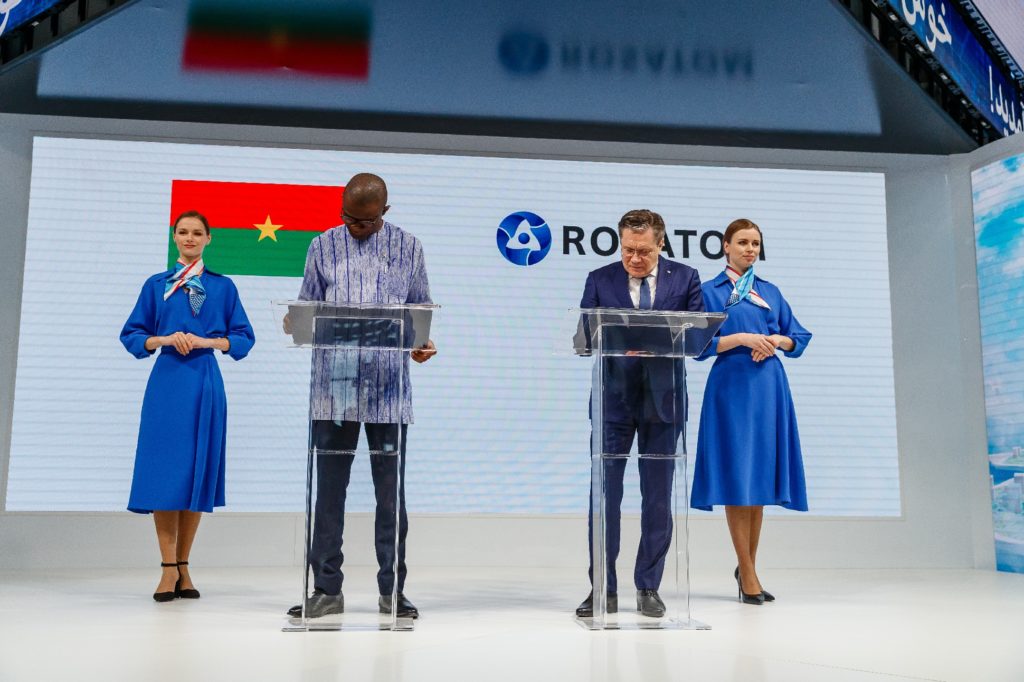
Egypt
Rusatom RDS (part of Rosatom) and the Egyptian Med Pharma Group signed a roadmap on cooperation in promoting the Tianox nitric oxide therapy device in Egypt. The new stage of cooperation will help Egyptian medical institutions upgrade their equipment and improve the level of medical care for the people.
Hungary
Rosatom and the Hungarian Association for Public Information and Oversight (TEIT) signed a roadmap of activities for 2024. The parties plan to carry out projects in the fields of culture, education, environment and sports under the current memorandum of cooperation signed in 2014.
Nicaragua
Rosatom Healthcare Technology and the Healthcare Department of the Nicaraguan Ministry of Health signed a roadmap for a joint project to build a cutting-edge nuclear medicine center in Nicaragua.
Rwanda
The Tomsk Polytechnic University (TPU, one of Rosatom’s backbone universities) and the Rwanda Atomic Energy Board signed a memorandum of understanding. The parties agreed to develop cooperation in education, training and research in nuclear physics and other areas.
Syria
Rosatom and the Atomic Energy Commission of Syria approved an implementation plan for the memorandum of understanding signed in July 2020. It provides for the supply of medical radioisotopes, radiation technologies for commercial irradiation, personnel training, and so on.
Armenia
Rusatom Service and Haykakan Atomayin Elektrakayan (Armenian NPP) signed a contract for the supply of equipment and upgrade of the cooling system for the reactor of Armenian NPP Unit 2.
Algeria
Rosatom and the Ministry of Energy and Mines of Algeria signed a roadmap for cooperation in peaceful uses of nuclear energy. The roadmap lays down measures to develop scientific and technical cooperation and personnel training, and provides for meetings of working groups and technical tours.


